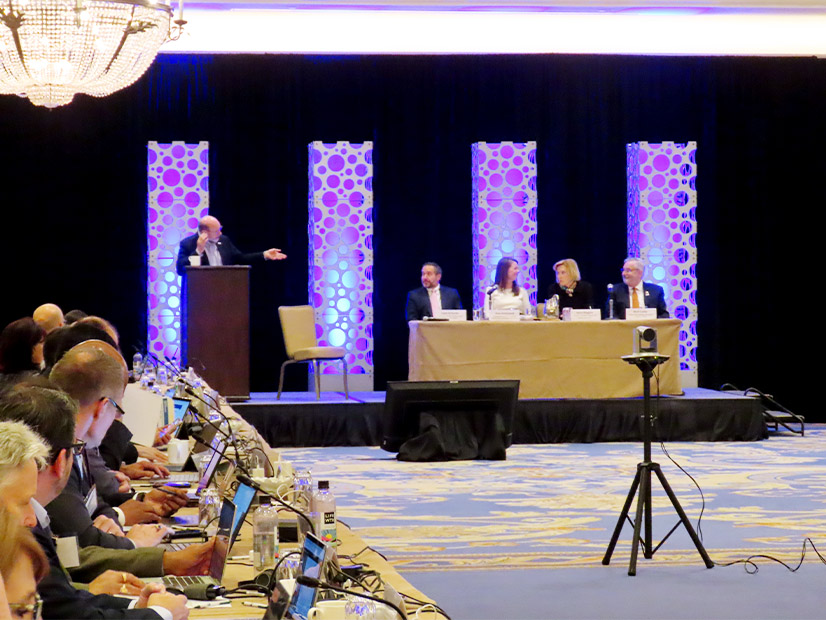
HOUSTON — Leaders from the gas and electric industries warned NERC on Feb. 14 that there are no easy answers to the challenges posed by the growing interdependence of their sectors.
Speaking at the ERO’s quarterly technical session in Houston, Todd Snitchler, CEO of the Electric Power Supply Association, acknowledged that the winter storms of February 2021 and December 2022 — also called Uri and Elliott, respectively — represented “two strikes” against the industries.
NERC and FERC’s joint report following the 2022 storm called the effects of cold weather on the gas and electric systems — gas production declined by more than 50% at some facilities, and generation failures led to more than 90 GW of unplanned outages — an “unacceptably familiar pattern.”
Leaders at both organizations have endorsed the idea of a gas reliability organization similar to the ERO, echoing a suggestion from the chairs of the North American Energy Standards Board’s Gas-Electric Harmonization Forum. (See NAESB Forum Chairs Push for Gas Reliability Organization.)
Snitchler was joined on stage by Interstate Natural Gas Association of America CEO Amy Andryszak, Natural Gas Supply Association CEO Dena Wiggins and NERC Chief Engineer Mark Lauby. He said that even before the FERC-NERC report was completed, he was already talking with Andryszak and Wiggins about how they could prevent the kind of supply issues, with gas needed for both home heating and electric generation, that led to so many outages during both winter storms.
“I reached out to Amy and Dena and said, look, we all agree [on] and recognize the importance of natural gas for the power sector; we’re all part and parcel of the system. And it would do us all a lot better if we tried to collaborate on what some workable solutions would be instead of pointing fingers,” Snitchler said.
“There’s no silver bullet that’s going to solve all the issues before us,” he continued. “In fact, I’m not even convinced there’s silver buckshot, because the situations are unique to regions, they’re unique to pipelines, they’re unique to resources, and they’re unique to each of our sectors and what we do. But I think what we tried to convey is that there are incremental changes that can be made, that will be very helpful when … you layer them on top of one another.”
Andryszak spoke more pointedly against the idea of a natural gas equivalent to the ERO, observing that the gas industry is “already heavily regulated by FERC and” the Pipeline and Hazardous Materials Safety Administration. She questioned whether a separate organization would really make much difference in overcoming the challenges cited in FERC and NERC’s report.
“FERC already has within their authority the right to ask more information of the pipeline industry as it relates to winterization, so we don’t think that there needs to be a new regulator to deal with that aspect, in addition to what we already voluntarily do,” Andryszak said. “But we think there’s more of a role that FERC could probably play there if they chose to do so.”
Wiggins pointed out that creating a gas reliability organization also poses practical challenges because the legislative environment today is different from how it was in 1967, when the Electric Power Reliability Act was passed, creating NERC, or even in 2005, when the Energy Policy Act created the ERO.
“Even if we believe that a mandatory GRO is the best thing since sliced bread, it takes legislation,” Wiggins said. “And as everyone knows who’s watching Congress these days, that is going to be, in this Congress or the next, a really tough [time] … which I think should further incentivize all of us … to work together and come up with solutions that we all can work with.”



